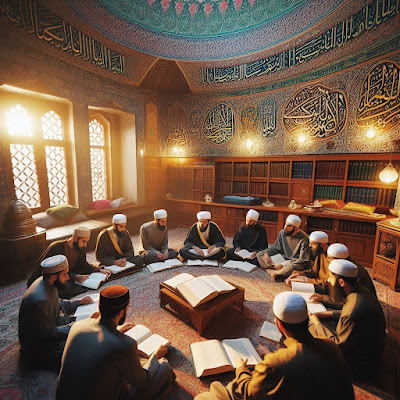Search This Blog
Sadiq Evolution is a platform that unites science, spirituality, and personal growth. Through specialized blogs, we explore topics like neuroplasticity, sacred geometry, mental health, food science and Islam, and introspective writing. We aim to inspire holistic self-discovery and evolution, blending modern science with timeless spiritual wisdom. Join us on a transformative journey toward enlightenment, balance, and empowerment, through the lens of Islam and the Ahle Bayt (As).
Posts
Showing posts from March, 2025
Knowledge Knows No Dress Code or Gender
- Get link
- X
- Other Apps
Scholarship is Place-Independent: Equal Access to Knowledge
- Get link
- X
- Other Apps
Restoring the True Islamic Method of Scholarship: The Pen as Proof
- Get link
- X
- Other Apps
Restoring the Islamic Method of Proving Scholarship
- Get link
- X
- Other Apps
📌 The Islamic Learning Model: From Discussion Circles to Lecture Halls
- Get link
- X
- Other Apps
When Did Having a Scholar at the Front of the Class Begin?
- Get link
- X
- Other Apps





